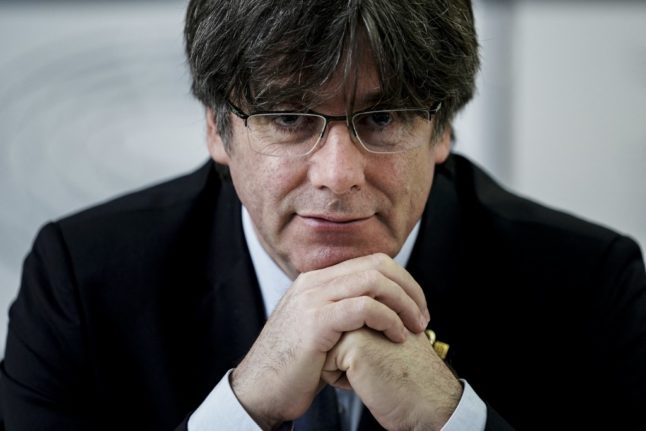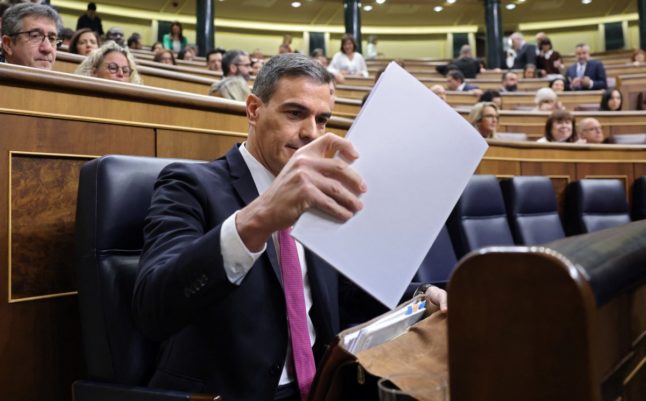“We have no confidence in Spanish political parties,” wrote the Catalan separatist on X, the social media platform formerly known as Twitter.
“We cannot move forward on the basis of promises made by those who always fail to keep them, so we need to see solid guarantees before committing to vote.”
His remarks came a day before Spain’s new parliament reconvenes under a cloud of political uncertainty.
Neither the right nor the left won enough seats to form a working majority, creating a political deadlock that could drag the country back to the polls later this year.
Puigdemont, 60, fled Spain for Belgium to avoid prosecution over his role in the thwarted Catalan independence bid, heads the Catalan separatist party JxCat, which won seven seats in the new Spanish parliament.
JxCat is still pushing for outright independence from Spain in defiance of past administrations in Madrid — but the seats it won to the national parliament could determine the colour of Spain’s next government.
READ MORE: Spain court rules against kingmaker Catalan ex-lead
The Catalan separatists have set the bar high for their support: an amnesty for anyone pursued by the Spanish justice system over their failed 2017 independence bid and a referendum on self-determination.
On Thursday, 350 newly elected lawmakers will renew the leadership of the Spanish parliament — the Congress of Deputies — voting in a new speaker.
That vote is widely seen as a trial run ahead of a crucial investiture vote — which determines who forms the government — expected early next month.
Neither the left nor the right won the 176 seats needed to have a working majority: each side won only 171.
That is what has put Puigdemont’s JxCat in such an influential position, for how the part votes — both on Thursday and in the investiture vote that follows — could be decisive.
Of the two main political blocs, outgoing Socialist Prime Minister Pedro Sánchez looks more likely to win their support.
He pledged Wednesday to promote the use of Catalan, Basque and Galician within Europe — a long-running demand of nationalist parties.
“Spain speaks Castilian Spanish but also Catalan, Basque and Galician,” Sánchez told a gathering of newly elected Socialist lawmakers.
“We are going to promote the use (of these languages) within EU institutions in a commitment I will carry out during Spain’s presidency of the European Union,” he said of the role Spain took over on July 1st.



 Please whitelist us to continue reading.
Please whitelist us to continue reading.
Member comments